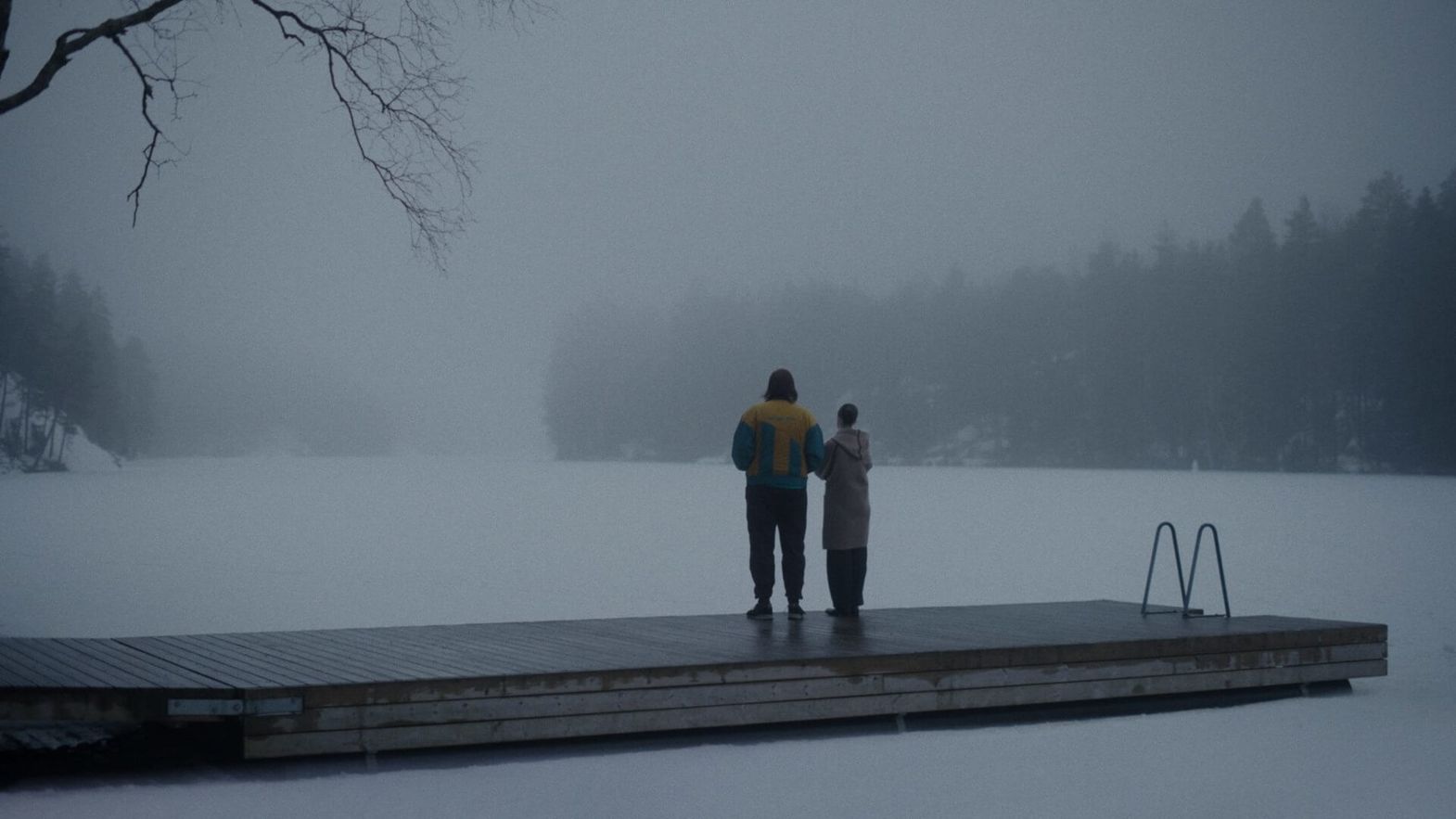
Cold, bleak, unfair, fiercely human. With his first feature film, Ran Huang takes us to the bleak Scandinavia of the 1990s, retelling the true story of Mads Lake, a troubled man grappling with a troubled past that leads him to confess to crimes he cannot remember committing. Psychotherapist Anna Rudebeck and police officer Soren Rank take an interest in the case without realizing the tortuous vortex into which Mads unwittingly drags them.
Ran Huang has managed to assemble a respectable cast, led by the Skarsgård father-son duo and a ruthless and magnetic Andrea Riseborough. The trio sustains an impeccable acting performance, playing layered and complex characters that develop in a slow and prickly manner, to the point of dragging the spectator into a painful psychological whirlwind from which they will find it difficult to free themselves. Huang's mise-en-scene is as immersive and fitting as one could imagine for narrating this mysterious thriller with highly psychological traits. Slow and elegant camera movements favor the mystery and desolation of the characters, the insistent use of long focal lengths allows immediate immersion in the thoughts of the protagonist, even if the image is always "dirtied", highlighting the lack of clarity regarding his past.
A film that burns slowly, and which in its slowness maintains the mystery that draws the audience in until the end credits. Feeding the solidity that is created between the technical compartment and the filmmaker’s intention is the enveloping sound system that, thanks to the dissonant underscoring and atmospheric bass, emphasizes the tension between the characters and the danger they are in. A tension that becomes increasingly precarious, but which also reveals the face behind the mask of the psychiatrist and the policeman. Three characters who represent a flawed human condition, naturally destructive to the psyche.
Mads claims to be a serial killer, his victims are young boys and their bodies have been reduced to unthinkable conditions. Still, it is difficult to attribute overwhelming guilt to him, and it hurts to think of him in prison, deprived of his freedom because he himself, before anyone else, suffered violence. Ran Huang has been meticulous in portraying a character afflicted with this delicate mental pathology and manages, despite everything and without pity, to make us empathize with him. Meanwhile, we witness the decline of the other two characters that makes the intrigue even more cruel and, as such, human.
What Remains is heavy viewing, in the most rewarding sense of the word. It is a film that shows the fearsome human injustice towards a person who is in need of help, a silent help, invisible to the insensitive. Instead of trying to help a person seriously in trouble because of previously suffered violence, What Remains paints a reality that drowns the protagonist even more in his self-doubt, in his crisis. A reality that condemns mental situations of which reality itself is the victim. A cold and merciless reality, like the landscape that shapes it. A film that shows the cruelty of a near past without expressing a clear-cut judgement, with the nobility of remaining silent to give the audience the chance to come to its own conclusion.
Alessandro Panelli